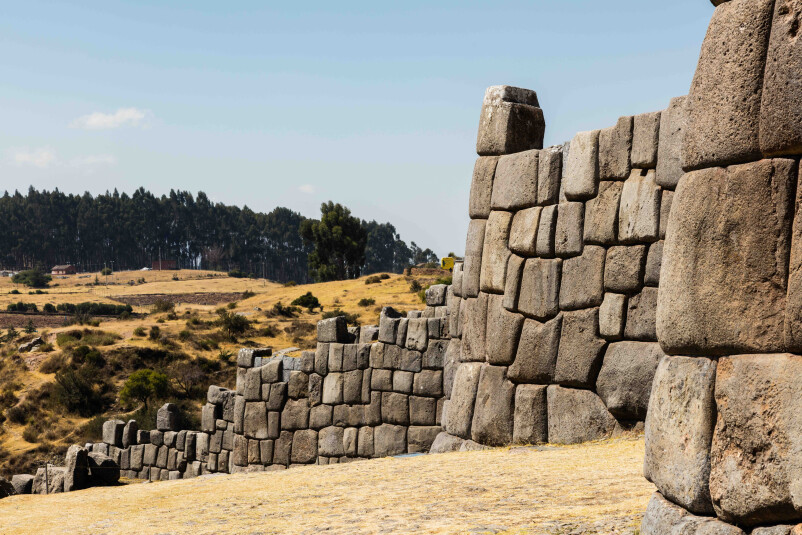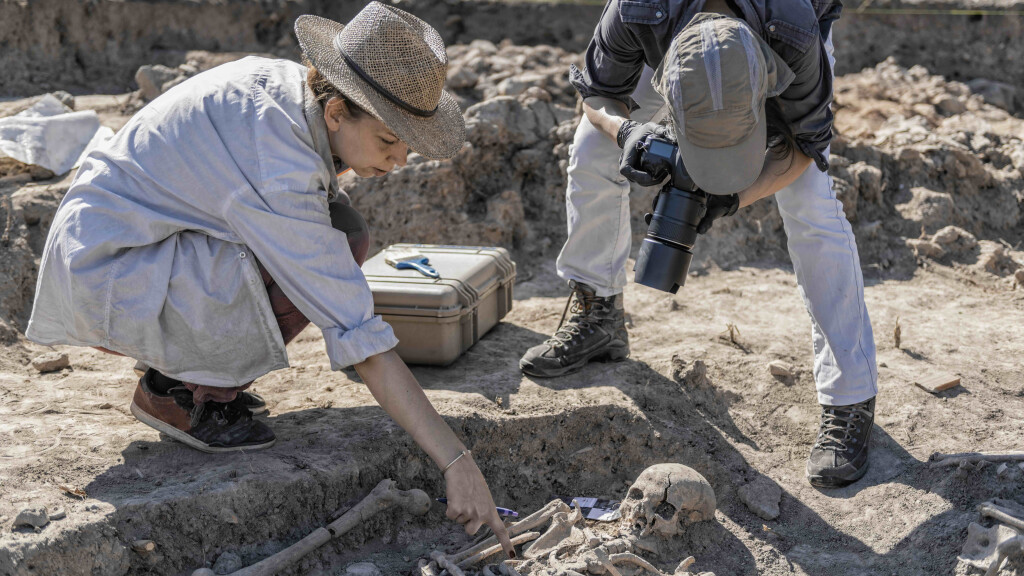
Are humans evolving or devolving?
04.11.18 | FAQs, Evolutionary Criticism, Old Testament, Origins | by Ian Taylor
Read time: 2 minutes, 50 seconds.
In our technology-driven world, we might become convinced that we are indeed evolving to "superhumans." Idealists such as Nietzsche and Adolf Hitler thought so. However, both Scripture and the historical facts show that far from evolving ever upward, mankind is "devolving" both physically and mentally.
According to Genesis 1:31, God declared that everything He had created in the beginning was "very good," and we can reasonably assume that prior to their Fall, Adam and Eve were perfect in body and mind. They were, in fact, created to live forever since death had not yet entered God's creation. However, after the business at the tree of the knowledge of good and evil, God cursed the ground and, thereafter, Adam and Eve became mortals (i.e., subject to death).
The Genesis record shows that Adam and his extended family lived ten times longer than anyone today [chapter 5]. For example, Adam lived for 930 years [Genesis 5:5], and this fact alone indicates that he and others of that pre-flood age must have been in very good physical shape. Following the Genesis Flood, the record shows that man's longevity decreased from over 900 years to 120 years [Deuteronomy 34:7]. Today, it is only the very exceptional person who makes it to 100 years. The oldest verifiable person in modern history was Jeanne Calment, who lived to the age of 122 years and 164 days - and no one seems to have exceeded it. Indeed, these exceptional cases are likely to become even more exceptional because the human gene pool is now accumulating genetic defects or mutations at an alarming rate.
But how about the mental abilities of those antediluvians [people before the Flood]? Genesis chapter five describes the activities of Cain's family. By the seventh generation – only 500 years after the creation of Adam – Jubal had developed the harp and the flute while his half-brother, Tubal-Cain, had developed bronze and iron!
Consider for a moment what making iron meant: A certain ore had to be extracted, then mixed with a specific mineral and heated to an extremely high temperature. Bronze requires lower temperatures, but the chemistry is more complicated. These achievements could not have been made by a series of "evolutionary accidents" over the years with no end in sight. Clearly, either these half-brothers – or perhaps Adam – had been inspired from a higher intelligence. In other words, they had to know beforehand what they were trying to achieve. The fact that they were successful requires intelligence.
The historical evidence also indicates that man in the most ancient civilizations was a lot smarter than textbooks lead us to believe. For example, Scientists and engineers still debate exactly how or even why the ancient Egyptians built their pyramids.

The armchair critic may scoff at the rough-cut packing stones that today form the outside of the pyramids, but is silenced when faced with the precision of the much larger cut-to-fit stones on the inside. A similar problem is presented by the famous stone wall at Cusco in the mountains of Peru (seen below). We have no idea how 140-ton stone blocks were transported 20 miles or more uphill.

And these are just a few of the many hundreds of examples of ancient man's genius. One of the most impressive is the Antikythera Mechanism, a very sophisticated and highly accurate tool built by the Greeks for determining the “language” of the heavens, during the 1st or 2nd century BC.
Finally, there is the historical fact that when members of a tribe who had the skills to produce crops, clothing, and metal tools were killed in internecine warfare, those who remained were quickly reduced to naked barbarism. Such was the state of the American Indian and the African when discovered and which seemingly gave "evidence" for man's evolution from the ape.
Images: Genomic Research, Scientist examining DNA profiles after analytical testing in the lab, Envato. Geometrical Elevations, of the Cathedrals of Salisbury, Norwich, St Paul's London, St Peter's Rome, and the Great Pyramid of Egypt, to one scale, Hayward; Priestly and Weale; R. Havell; T. H. Clarke, PD, Wikimedia Commons. Sacsayhuamán, Cusco, Perú, Diego Delso, CC BY-SA 4.0, Wikimedia Commons.
FOR A DEEPER DIVE:
Read The Genius of Ancient Man: A team of researchers from Jackson Hole Bible College has uncovered a tremendous amount of evidence for the intelligence and achievements of early man. All over the world there are findings of ancient religions, cities and towers, world travel, advanced astronomy, and civilized government that confirm the accuracy of biblical history.



